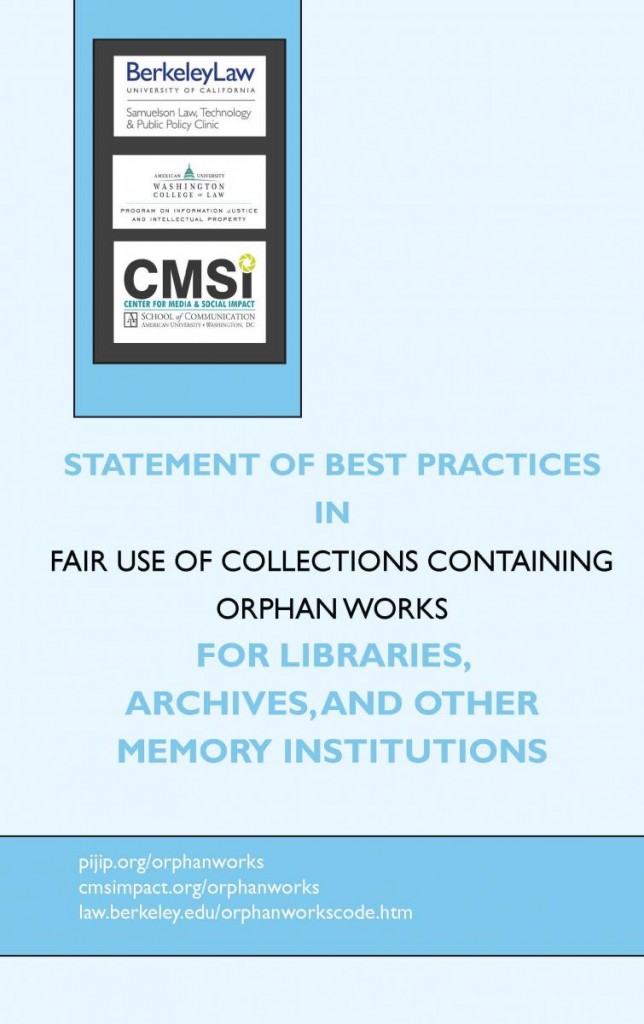 At a live webinar on Thursday, Dec. 4, UC Berkeley and American University researchers released a new statement on best practices in the use of orphan works by libraries, archives and other institutions.
At a live webinar on Thursday, Dec. 4, UC Berkeley and American University researchers released a new statement on best practices in the use of orphan works by libraries, archives and other institutions.
Over the last several years, libraries, archives and other institutions have recognized that copyright law poses a significant obstacle to digital preservation of—and online access to—large segments of their collections. This problem is especially acute for archives and collections that contain orphan works–i.e., works for which it is difficult or impossible to find rights holders who might give permission for their use. This so-called “orphan works” problem is significant enough that it has led to proposed legislative solutions by members of congress, the U.S. Copyright Office, and private parties.
The new Statement of Best Practices in Fair Use of Collections Containing Orphan Works for Libraries, Archives, and Other Memory Institutions is the result of intense discussion group meetings over the last two years with over 150 librarians, archivists, and other memory institution professionals from around the United States. The Statement documents their ideas about how to apply fair use to collections with orphan works and how to make them available online. It outlines the fair use rationale and identifies best practices in the preservation of, and access to, those collections.
The Statement is the most recent of several frequently-used community-developed best practices of fair use, which includes the Association of Research Libraries’ Code of Best Practices in Fair Use for Academic and Research Libraries, among others.
You can view the Statement and find additional information and updates at https://cmsimpact.org/orphanworks.
